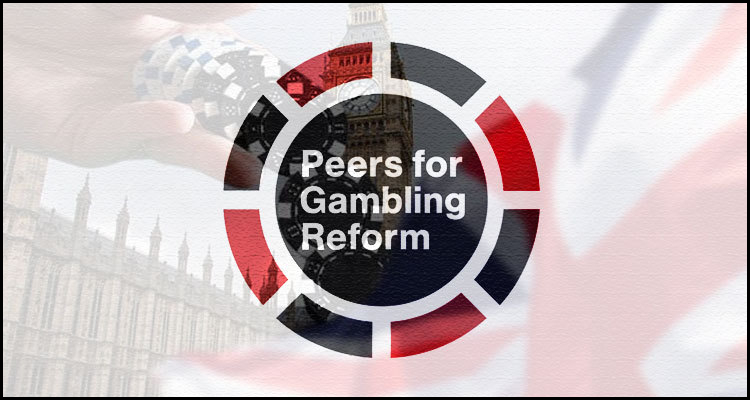In the United Kingdom and a cross-bench group of House of Lords parliamentarians has reportedly declared that the country’s iGaming industry should be extensively overhauled via the implementation of 50 recommendations.
According to a report from SBC News, the Peers for Gambling Reform organization put forward its suggestions as part of the House of Lords Select Committee on the Social and Economic Impact of the Gambling Industry Report. The body consisting of around 150 members purportedly asserted that the industry should be compelled to implement effective affordability checks and be banned from offering any direct inducements such as deposit bonuses.
Contact idea:
The source explained that the examination from the Peers for Gambling Reform also called for online casino and sportsbetting operators in the United Kingdom to be forbidden from directly marketing their services or sponsoring sporting matches or teams. It purportedly moreover recommended the launch of an enforceable ‘duty of care’ code, a ‘gambling ombudsman’ to redress wrongs and a mandatory ‘smart’ levy to fund research, education and treatment costs.
Established limits:
The United Kingdom is currently conducting a generational review of the 2005 Gambling Act and the parliamentarians reportedly furthermore asked that the industry be obliged to test and rate games with regards to their potential for harm. The group purportedly moreover recommended the implementation of speed of play limits in addition to similar thresholds on stakes subject to triennial reviews.
Extra aims:
Other suggestions from the Peers for Gambling Reform reportedly encompassed bringing the regulation of ‘loot boxes’ under the control of the Gambling Commission, improving the safety of ‘VIP schemes’ and establishing an NHS-led system to help treat gambling addictions.
Economic analysis:
Lord Foster of Bath, Donald Foster, Chair for the Peers for Gambling Reform, reportedly asserted that his group’s recommendations would benefit the country by creating jobs, raising additional tax revenues and providing a boost for the funding of research, education and treatment. The Liberal Democrat parliamentarian moreover purportedly declared that each proposal had been examined to gauge the ‘hypothetical direct effects’ on operators’ gross gaming yield, tax liabilities and costs before having their macroeconomic effects modelled using a ‘simplified input-to-output approach’.
Feasible trio:
The examination from the Peers for Gambling Reform reportedly estimated that the blow to the British iGaming industry’s combined annual profitability owing to the full implementation of its reforms would consequently likely fall within three categories. These purportedly encompassed a ‘high impact’ of up to £974 million ($1.3 billion), a ‘medium impact’ topping out at £819 million ($1.1 billion) and a ‘low impact’ of about £696 million ($983 million).
However, the report reportedly maintained that ‘industry profits are likely to exceed these financial costs’ and pointed out that the aggregated post-tax profits of leading operators Entain, Flutter Entertainment, Camelot, William Hill and Bet365 in 2019 came in at £697 million ($984 million). It purportedly went on to disclose this figure did not include the £277 million ($391 million) salary paid to the Chief Executive Officer for Bet365, Dennis Coates, or the gains recorded by other industry operators.
Reportedly read a statement from Lord Foster…
“The evidence base and now the economic case for reform have now been made. This government now needs the resolve to get on with it.”
Industry response:
Nevertheless, the boss for the influential Betting and Gaming Council lobby group, Michael Dugher (pictured), reportedly responded by deriding the ‘fantasy figures’ of the Peers for Gambling Reform and describing the idea that growth would be stimulated by further restricting the British iGaming industry as ‘economically daft’.
Existing support:
The Betting and Gaming Council represents approximately 90% of British gaming, sportsbetting, casino and bingo operators and SBC News used a second report to disclose that these firms together already contribute approximately £100 million ($141 million) annually to help support research, education and treatment schemes. It purportedly pronounced that this is in addition to the £10 million ($14.1 million) that is every year bequeathed to the Young People’s Gambling Harm Prevention program.
Dugher reportedly proclaimed…
“The dream of anti-gambling prohibitionists has always been to somehow force people not to gamble or to gamble less, just because they don’t like betting. A minority of peers may look down their noses at the millions of working people who enjoy a bet but the truth is that the overwhelming majority do so perfectly safely.”



